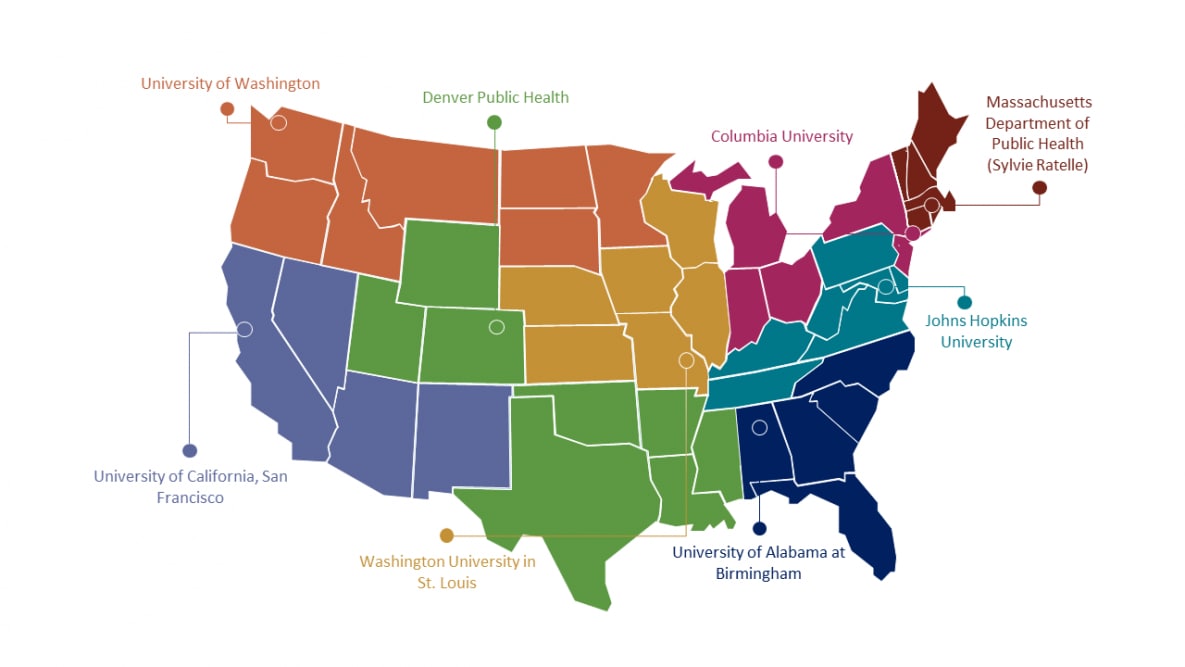At a glance
To support the Ending the HIV Epidemic in the U.S. (EHE) Initiative, the Department of Health and Human Services has provided multiple funding opportunities to jurisdictions, including continued investments in sexual health clinics (i.e., STI clinics).

Scaling up HIV Prevention Services in Sexual Health Clinics
Through the EHE Initiative, the Department of Health and Human Services (HHS) has set an ambitious goal of reducing all new HIV infections in the U.S. by 90% by 2030. To support this goal, HHS has provided multiple funding opportunities to jurisdictions, including continued investments in sexual health clinics.
In August 2024, CDC awarded funding to 15 recipients to scale up HIV prevention and care services in sexual health clinics. This award was made through a new funding opportunity PS-24-0003: Support and Scale Up of HIV Prevention Services in Sexual Health Clinics (SHIPS) funded by the EHE initiative. SHIPS builds on the progress made integrating HIV prevention services in sexually transmitted infections (STI) clinics under Component C of CDC's PS20-2010 program.
SHIPS is committed to advancing health equity and is supporting existing sexual health clinics that serve communities with high HIV and STI burden. HIV/STI screening in sexual health clinics provides an opportunity to link patients to high-impact HIV prevention services and to facilitate linkage to, retention in, and re-engagement in HIV care among persons with HIV.
SHIPS Strategies
SHIPS recipients are implementing two required strategies:
- Strategy A – Strengthen clinic infrastructure and improve service delivery to address the syndemic of HIV and other STIs: Syndemics are epidemics that interact with each other and by that interaction increase their adverse effects on the health of communities that face systemic, structural, and other inequities. Holistic, coordinated care is a hallmark of the syndemic approach. Strategy A activities will support a syndemic approach that is essential to providing patients comprehensive sexual health services in clinic settings where they routinely receive care.
- Strategy B – Foster strategic partnerships in support of the EHE initiative: Community partners are uniquely positioned to complement and extend the reach of HIV/STI prevention efforts in sexual health clinics. Under Strategy B, recipients will identify the most productive means for reaching out and engaging the community and other partners and will build action-oriented and strategic partnerships.
Award Recipients
Fifteen recipients were awarded a total of $9 million for the first year of SHIPS, starting on August 1, 2024. This cooperative agreement is for five years of funding (August 1, 2024 – July 31, 2029) based on availability of funds.
Involving Community Members in Clinic Planning
In September 2023, CDC awarded funding to 26 recipients to expand access to sexual health services in communities with high HIV and STI burden and an unmet need for HIV and STI clinical services. This award, made through the funding opportunity PS-23-0011: Enhancing STI and Sexual Health Clinic Infrastructure (ESSHCI), has expanded services in a variety of clinical settings, including primary care clinics, community health centers and brand new sexual health clinics. Recipients have focused on identifying and meaningfully engaging with members of priority populations disproportionately impacted by HIV and STIs in their area. Involving community members, including people with lived experience, in the clinic-level planning process is helping recipients identify unaddressed challenges that contribute to HIV/STI, reduce stigma, improve sexual health literacy, and implement responsive interventions that can contribute to better sexual health outcomes for the community.
Award Recipients
Twenty-six recipients are receiving ESSHCI funding for the program's period of performance.
Building Sexual Health Clinics’ Capacity Through Training and Technical Assistance
In August 2024, CDC awarded supplemental funding to the National Network of Sexually Transmitted Diseases Clinical Prevention Training Centers (NNPTC) to bolster training and technical assistance efforts for EHE-funded sexual health clinics. The NNPTC is developing and coordinating resources to support the integration of HIV prevention and care activities in sexual health clinics. Examples of activities include sexual health clinic assessments, evaluation of patient flow, and provision of technical assistance to increase clinician knowledge, skills and capacity related to STI/HIV diagnosis and management for EHE-funded sexual health clinics.
Award Recipients
Eight training centers and two national centers have been awarded a total of $2 million to provide training and technical assistance to EHE-funded clinics.

Resources
- Turning the Tide on STIs: Integrating Services to Address the Syndemic of STIs, HIV, Substance Use, and Viral Hepatitis
- CDC's Ending the HIV Epidemic website
- America's HIV Epidemic Analysis Dashboard (AHEAD)
- Funding Opportunity Announcement PS20-2010: Integrated HIV Programs for Health Departments to Support Ending the HIV Epidemic in the United States
